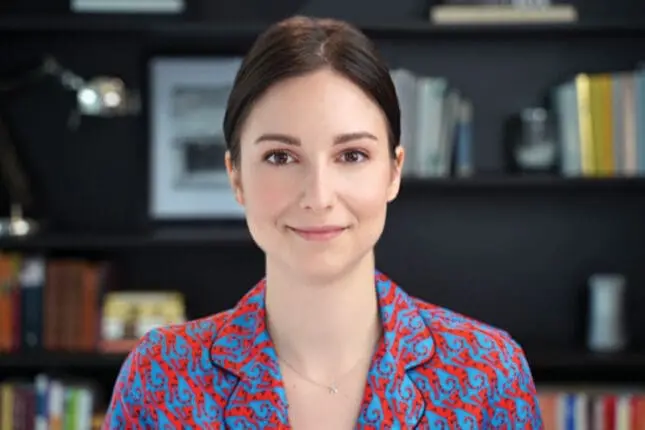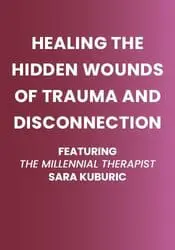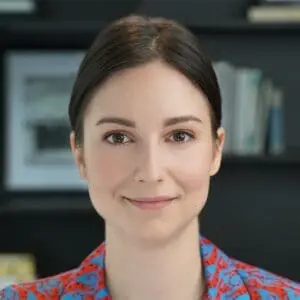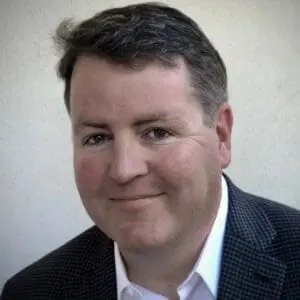What’s the meaning of my life? Why am I even here? Is there an ultimate purpose to all this? Who am I really? Some of us may have pondered questions like these early in our youth, possibly in a college philosophy course, or perhaps on a remote mountaintop, next to one or two close friends, a joint dangling between someone’s fingers. The act of considering these questions probably felt important, profound, scary even. So why don’t more of us consider them with clients in our therapy sessions?
Modern-day graduate and therapy certification programs generally teach us to focus on issues that help people connect to short-term goals, such as resolving trauma and developing emotion-regulating skills, but a cohort of young therapists—some of them social-media-savvy millennials—are asking clients to take a deep dive into existential concerns. They’re convinced this approach can help clients lead happier, more authentic lives. Of course, existentialism isn’t new. It enjoyed a brief heyday in the mid-20th century with Rollo May, the father of American existential therapy, who influenced Carl Rogers. But existential therapy as a popular therapeutic approach has fallen by the wayside in the last few decades. That is, until now.
One millennial therapist has been playing an outsized role in the resurgence of existentialism: Yugoslavian-born Canadian Sara Kuburic. A psychotherapist and former columnist for USA Today, she has 1.6 million followers on Instagram, where she claims the title of The Millennial Therapist. She uses her personal experience of living through wars and navigating a challenging world to inform and inspire her audience. She recently released her first book, It’s On Me: Accept Hard Truths, Discover Yourself, Change Your Life, in which she addresses topics like responsibility, the self, and phenomenology.
Kuburic shared with us why so many in her generation are opting out of the call to jump on board the newest, shiniest treatment trains, and are instead finding solace, just as she has, in rediscovering the well-worn, perennially liberating path of existentialist thought.

Ryan Howes: Tell me about your social media moniker, The Millennial Therapist. What’s that about?
Sara Kuburic: Obviously, I’m a millennial and a therapist. Although I have a lot of insight into the experiences and lifestyle people of my generation often share, my work is really for everyone.
One thing I feel the larger therapy world should understand is that millennials have gotten a bad rap. Ten years ago, we were considered a lazy, entitled, flaky, and sensitive generation. Not only were those labels unfair, but hearing them affected a lot of us in negative ways. The truth is our society has drastically changed in the last decade or two, and now millennials are trying to navigate this new social-media-amplified landscape that we’ve all cocreated, but no one, including us, knows how to live in. Arguably, every generation feels lost among the others and experiences that lack of support, but for millennials and Gen Z’ers overall, there’s a mass identity crisis, and it’s existential.
RH: I understand that your embrace of existentialism stems from your experience of growing up in war zones. How did that influence your work?
Kuburic: Growing up, my favorite book was Dostoevsky’s Notes from Underground. The first half is his inner dialogue, which is deeply negative and tortured. I really liked it because that’s how a lot of us process information that lingers in our minds. When I read it at 13, I was like, “Wait, he sounds like me.”
I suppose that’s disturbing in retrospect, but I felt like he was asking all the big questions and not shying away from his pain. And that’s why existentialism appeals: it’s so forward facing. Existentialism says, “There’s so much darkness and so much absurdity, and there’s no right answer. The only way to get through life is to go headfirst and just see what happens.”
When it comes to existentialism and therapy, I’ve been greatly influenced by Irvin Yalom’s writing. Victor Frankl has also been a major contributor to my work. Austrian psychotherapist Alfried Laengle, who worked with Frankl, was my doctoral supervisor and trained me in existential analysis.
RH: Of course, some practitioners are still doing existential analysis, but it seems as if you’re an outlier among younger therapists, who appear to be more into the acronym therapies like ACT, CBT, DBT, and IFS. It’s rare to find someone asking clients to answer philosophical questions like, “What am I all about?”
Kuburic: I think the cognitive modalities have a lot of value. But when I was feeling lost and grappling with my existence, existential therapy felt like a little light amongst all the darkness. I noticed that ignoring these big questions eventually manifested into smaller problems that we would then try to “fix” or “change.” I love how audacious it is to stare into the void and guide others to do the same.
RH: It’s like Nietzsche said: “He who has a why to live for can bear almost any how.”
Kuburic: Totally! I remember sitting in my training for existential analysis, studying the fundamental motivations in life, and the professor putting it this way: “You’re here, but do you like it? What’s your value in life?”
It seemed so simple. But I began to unravel as other students talked about the different aspects of their life that they liked, and I realized I didn’t like any of mine. That was scary. Usually, when things go awry for people, they believe, or they’re told, their life would be better if only they had a healthy relationship or were in grad school or had a job. But in that moment, people said to me, “You’re doing everything right.” I had those aspects of my life in place; that’s what horrified me. I was doing everything right, and yet I didn’t feel right, and I didn’t know of any solutions out there that would help me as someone who was doing everything right.
RH: This sounds like what you’ve called an issue of Self-loss, a big focus of your work. Was yours really a loss of the Self, or was your Self not developed in the first place?
Kuburic: Because of my early traumatic childhood experiences in war-torn areas and immigrating to other countries, I skipped over the self-awareness and self-expression phases of childhood and adolescence, and just went into self-preservation. I found opportunities to create my Self later, in my late teens and early 20s, but I never took them, because I was still operating as though my existence was threatened.
If I had a sense of Self, it was weak. In other people’s cases, they may have a developed sense of Self but lost it when they became a mother, or got a new job, or moved to a new location, or by compromising themselves in so many little ways that they finally woke up one day and asked, “Whose life is this? Who am I?”
RH: Some people might call this a matter of “finding yourself,” but you don’t like that phrase.
Kuburic: It assumes there’s a preconceived, constructed sense of Self that’s been given to you and you just need to find. Almost as if you can go into your closet, put on a sweater, and walk around being like, “This is it for the rest of my life.” In my mind, you create your sense of Self. And that Self is perpetually evolving. Authenticity isn’t static. Every single interaction, conversation, and experience is molding and shaping this Self, which I think is both a beautiful and horrifying concept. It means we’re responsible for every tiny decision. Are we having coffee in the morning or not? Who are we having conversations with? What are we reading and consuming on social media? Knowing that every single thing you do is what shapes your existence and your sense of Self can be such a significant realization.
RH: What role does early attachment play in the development of Self?
Kuburic: We know that it’s significant, but it doesn’t take away your responsibility to make choices and changes. You might be anxiously attached because of your mom, but it doesn’t limit your capacity to—your responsibility to—keep growing and changing, including changing your attachment style, which I think is possible.
RH: The idea of taking responsibility is a major part of your book, but for some clients, like survivors of abuse, that may seem like a harsh concept.
Kuburic: With survivors, it’s important to validate the unfairness. It’s incredibly unfair that your life had these obstacles that impacted you in so many painful ways, and now you’ve got to clean up the mess. You didn’t make the mess—it wasn’t your fault—but you have to clean it up, and the reality is, no one else can do it for you. You deserve more than to live in the mess!
There’s a question I love to ask clients, but it’s hard to hear, so you need to have a lot of safety within the therapeutic relationship to ask it: “Now what?” Essentially, I’m saying, “I get it: your parents were terrible. I get it: that awful thing happened to you in college. I get it: they cheated on you. Now what? Those experiences don’t have to become your identity. They’re only a piece of it.”
If you understand the Self as just an accumulation of thousands, millions, billions, trillions of experiences, you get to decide what meaning you make out of all of it. You get to decide how you want to relate to what’s happened and how much you want to think about it. Understanding how much power we have can be scary, but if clients are ready for that change, it can be incredibly empowering.
RH: How important is our relationship with our own Self?
Kuburic: Arguably, it’s the most important relationship you’ll have with anyone. And not in a “love yourself” kind of way. It’s more essential than that. Going through life without that relationship is like watching a movie and not knowing who the main character is, or what the plot line is, or what the character development is supposed to be. You don’t understand why the characters are doing certain things. That gets very confusing.
I start the conversation about self-knowledge with clients by asking, “If you don’t know who you are, who are the important people in your life having a relationship with?” Or, if you’re a parent to a child and you don’t know who you are, how is your child supposed to connect with and relate to you? Not that I love external motivations, but if you’re starting from a place of wanting insight into yourself so you can improve your external relationships, fine. Let’s start there. Eventually, we’ll get you to the point where you’re like, “This means so much to me, and I want to experience and taste and embody life, and that’s why I’m doing this.”
RH: We therapists often encourage clients to spend time with themselves, but some have a hard time just sitting with themselves without distraction. How can we address that with our clients?
Kuburic: I love this question! I have a lot of clients who want to do the self-work, but every time I tell them they have to spend time alone, their face just crumbles, as if I’ve just kicked their puppy. So I tell them, “Okay, maybe you don’t want to be at home meditating, doing yoga, or stretching in silence. Instead, just try being intentional for 20 minutes, observing how everything you do affects you. Listen to a song, and notice, what memories come up? What’s in your body? What thoughts are recurring? What do these thoughts make you want to do? Are you daydreaming? Are you fantasizing about a different perspective, a different person? Is this teaching you anything about who you are in this moment?” Anything in your life can teach you something about who you are. Ultimately, this work is a way of existing, and of positioning yourself in the world.
Did you like this interview? Learn more about self-loss and help your clients with Sara’s digital seminar
Sara Kuburic
Dr. Sara Kuburic, known as the Millennial Therapist, is an existential psychotherapist, consultant, writer, and columnist for USA Today. She’s also the author of It’s On Me. Sara was born in Yugoslavia and raised in Canada. She is passionate about helping people seek change and live authentic, free, and meaningful lives. Her interest in psychology stems from her personal experience living through wars, navigating complex relationships, and continually learning what it means to be human. Visit her website at sara-kuburic.com.
Ryan Howes
Ryan Howes, Ph.D., ABPP is a Pasadena, California-based psychologist, musician, and author of the “Mental Health Journal for Men.” Learn more at ryanhowes.net.
















